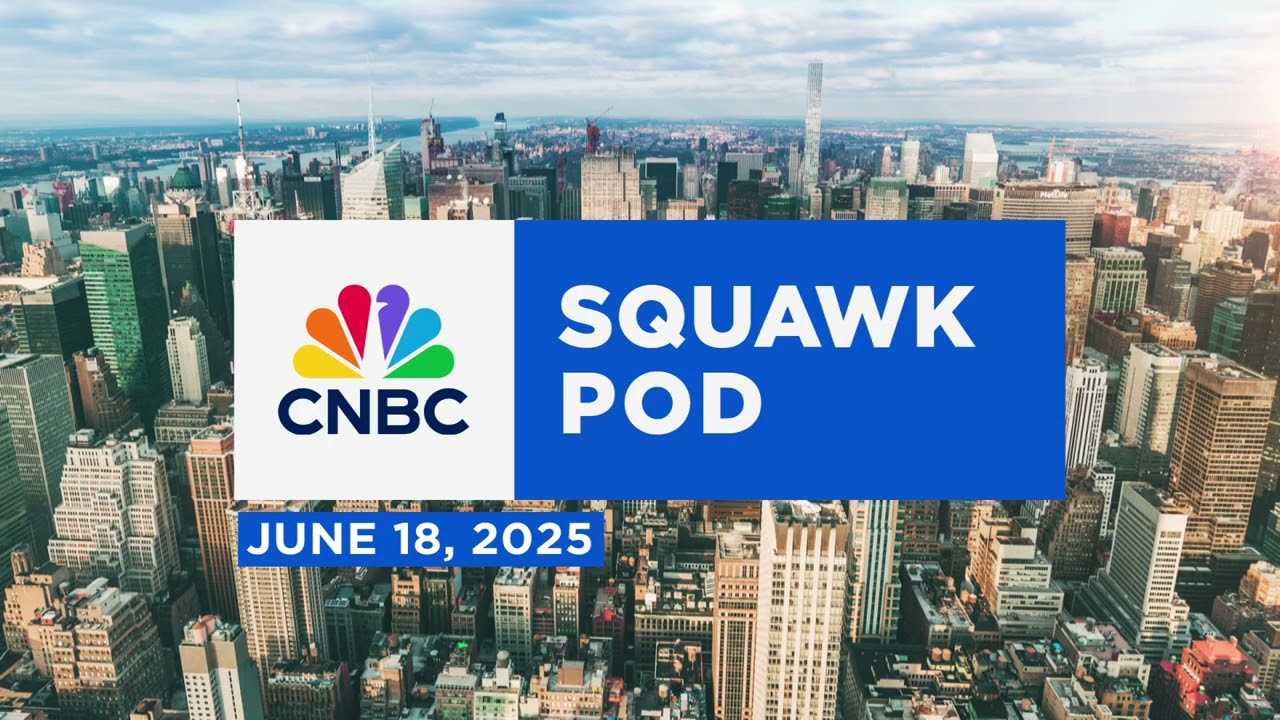The Squawk Pod episode from June 18, 2025, discusses escalating tensions between Israel and Iran with potential U.S. military involvement, insights from General Wesley Clark on a balanced military and diplomatic approach, and concerns from Andrew Yang about AI-driven job displacement alongside a fierce competition for AI talent highlighted by Meta’s $100 million offers. Additionally, the episode covers JP Morgan’s entry into crypto with a new stablecoin and General Mills’ plan to remove artificial colors from its products by 2027, reflecting broader trends in technology, geopolitics, and consumer preferences.
The Squawk Pod episode from June 18, 2025, opens with a focus on escalating tensions between Israel and Iran, highlighting recent Israeli airstrikes on Iranian nuclear facilities and the potential for U.S. military involvement. Reports suggest that President Trump is considering a strike on Iran’s Fordo nuclear site, with B2 stealth bombers reportedly positioned in the Indian Ocean. The situation is tense, with Iran threatening retaliation against U.S. bases in the Middle East, though no immediate attacks have been confirmed. The political landscape is divided, with some Republicans advocating for intervention while others push for isolationism, reflecting broader debates about America’s role in the region.
Retired four-star General Wesley Clark, former NATO Supreme Allied Commander, joins the discussion to provide strategic insights. He emphasizes the importance of a dual-track approach combining military preparedness with robust diplomacy. Clark warns against a simplistic military strike on Iran’s deeply buried nuclear facilities without a clear endgame, advocating instead for a comprehensive plan that includes diplomatic negotiations aimed at curbing Iran’s nuclear ambitions while avoiding regime change. He stresses the need for patience and strategic leverage, drawing parallels to past conflicts like Kosovo and Libya, and underscores the risks of entering another prolonged Middle Eastern conflict without a clear resolution.
The conversation then shifts to the impact of artificial intelligence on the labor market, featuring former Democratic presidential candidate Andrew Yang. Yang expresses concern about the rapid pace of AI adoption leading to significant job displacement, particularly among recent graduates and entry-level workers. He highlights that AI is not only automating manual jobs but also white-collar roles such as coding and design, potentially leaving many without traditional career ladders. Yang advocates for proactive government intervention, including policies like universal basic income, to address the societal challenges posed by AI-driven automation and to ensure that the benefits of technological progress are broadly shared.
In the tech industry, competition for AI talent is intensifying, with OpenAI CEO Sam Altman revealing that Meta has offered $100 million signing bonuses to lure top AI researchers. Despite these lucrative offers, OpenAI has so far retained its key personnel. This talent war underscores the high stakes in AI development, as companies race to lead in this transformative technology. Meanwhile, JP Morgan is expanding into the crypto space by planning to launch its own stablecoin, signaling growing institutional interest in digital assets and blockchain technology.
Finally, the episode covers consumer product changes, with General Mills announcing plans to remove artificial colors from its U.S. product lines by 2027, following similar moves by other food companies. This shift reflects increasing consumer demand for natural ingredients and regulatory encouragement to reduce synthetic additives in food, particularly in products marketed to children. The hosts humorously speculate on the impact this will have on iconic cereals like Lucky Charms, noting the challenges of maintaining product appeal without artificial dyes. The episode closes with a reminder of the complex and rapidly evolving issues facing the global economy, technology, and geopolitics.
